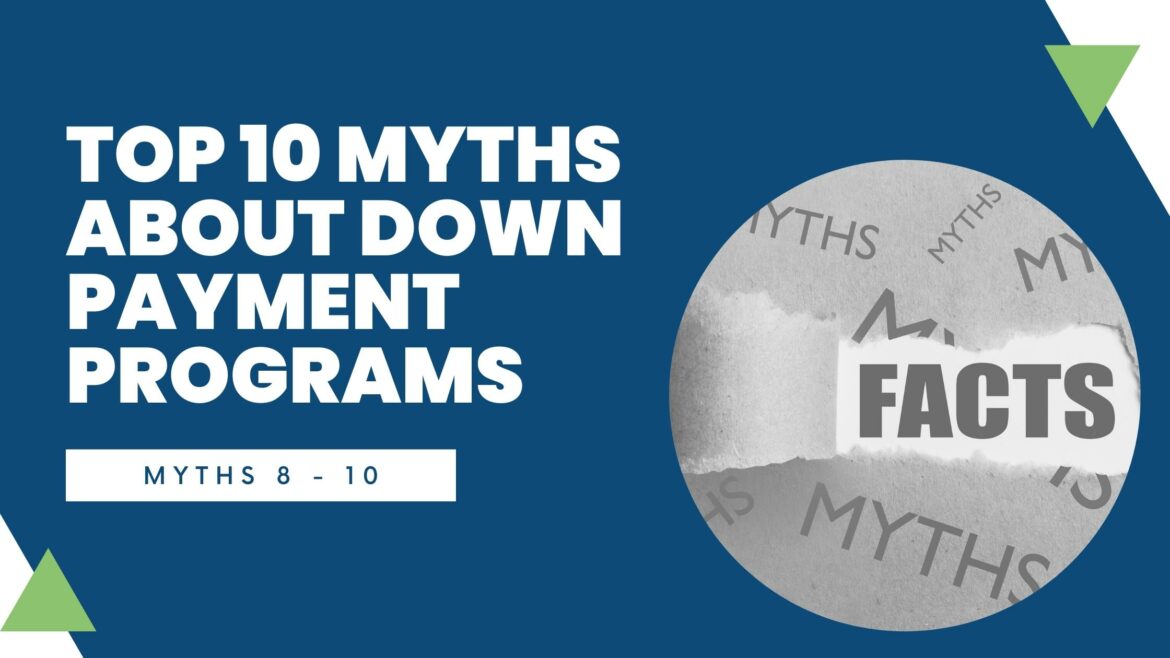
Start the New Year Strong: Why Down Payment Programs Should Be Part of Your Homebuying Plan

In a highly competitive market, it’s important to investigate all of your options, including down payment help. Here, we debunk our final three surprisingly common myths about home financing and down payment assistance.
Make sure to check out Myths #1 – 4 and Myths #5 – 7 to get the full list.
Every state in the U.S. has some form of homebuyer assistance available, and Down Payment Assistance (DPA) programs make up 73 percent of the programs offered. DPA programs may come in the form of a repayable second mortgage loan or a non-repayable grant.
Grants are typically structured as gifts delivered at closing that do not have to be repaid. The funds help cover some or all of the down payment or closing costs and provide a unique upfront buying power for homebuyers.
With repayable second mortgages, some accrue interest, while others are amortizing loans. They typically range from 5-year to 30-year loans with varying payback provisions. The repayment may start immediately or kick in after a predetermined period of months or years.
Regardless of the repayment terms, DPA programs still give you an opportunity to get into a home that may not have been affordable otherwise. That’s especially important in markets where rents are quickly on the rise.
Are you worried the seller will balk at a contract with financing beyond a typical first mortgage? While that might happen, the real issue at hand may be the fear of a longer closing time or a complicated closing.
In order to improve the timeline and reduce any seller fears, you should complete homebuyer education early, submit loan documents to the lender promptly, and do your part to expedite the process from the beginning.
Also, keep in mind that DPA programs may cover items like closing costs, which helps buyers compete on price and seller-paid costs. When agents and sellers open their minds to buyers taking advantage of these programs, it can help all parties involved.
Although there are benefits to putting more money down on a home, it’s not necessary.
DPA programs give you a chance to retain some of your savings for long-term homeownership success. You can move into your new home with a financial cushion in place, some skin the game, and critical homebuyer education under your belt.
Bottom line: The biggest obstacle to homeownership is the down payment. Whether you’re planning to buy now or later, you should know the benefits of down payment programs and check to see if you’re eligible.
That wraps up our top 10 down payment assistance myths. Don’t miss Myths #1 – 4 and Myths #5 – 7 to get the full story.
Never want to miss a post? For more useful down payment and home buying information, subscribe to our mailing list.
